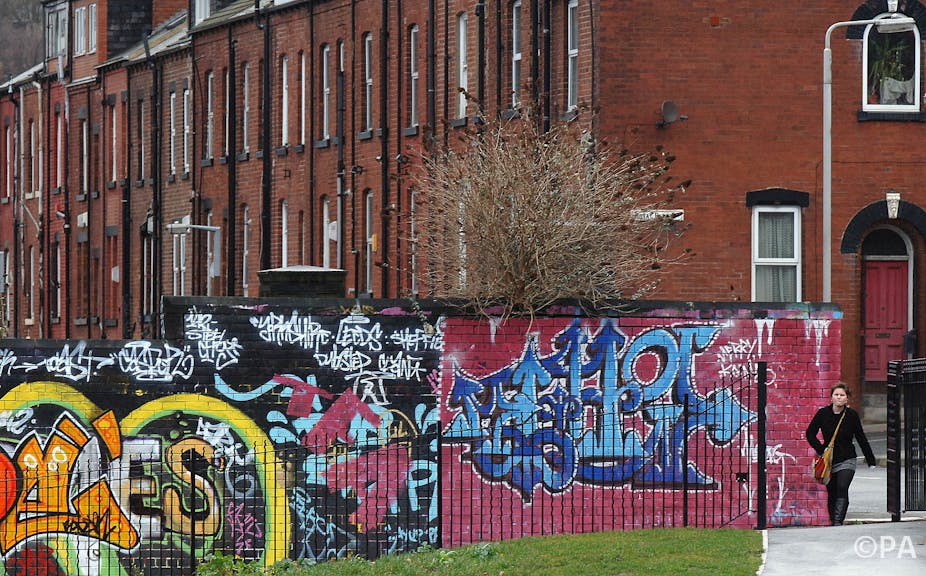Social work is at a crossroads. As the next election cycle begins, the country’s social workers are caught between two completely different visions of their profession. One is based on the ideal of a democratic mandate and community recognition; the other sees the job principally as a teachable set of management attributes.
On the one hand, a slick website littered with magazine-style pictures of models acting the role of social workers, advertises for brand managers to promote the new Frontline education programme: an “officer class model” of social work, supported by merchant banks and management consultancy companies and fronted by Josh McAllister, a sharp-suited 26-year-old with no professional social work experience.
Frontline employs modern marketing methods, including paid student “brand managers” to promote it within institutions. The stated aim of its marketing campaign is to recruit “outstanding individuals” for their masters degree, which is not in social work itself but instead (and contentiously) in “social work leadership”.
On the other hand, there was the recent Social Work Action Networks annual conference in Durham, opened and closed by Heather Wood and Cathy King, two activists from the working-class movements of the North East. Now in their 70s and 80s, they are clearly both part of the communities they have represented, and of a broader radical culture. After asking social work delegates if they are “sitting comfortably”, they then reminded them that they certainly shouldn’t be in a climate of poverty, cuts and austerity.
The growing tensions in both social work education and practice are part of broader policy struggles over the role of private providers in public services; and of the mission of social workers and their relationship with the communities they serve and work in – or the private companies they work for and promote.
Creating an officer class
Taught in UK universities since 1908 and with more than 100 undergraduate and postgraduate courses currently on offer, social work has long been an established discipline in the UK. Given the extensive provision of education for the sector, the Frontline programme makes very little sense as just another education provider. However, a closer look at the management consultancy and other linked business sponsors of Frontline shows that it makes complete sense as a support programme for the privatisation of social work.
These are the same business and political sponsors which supported the Teach First programme – which Frontline boss McAllister took part in – and the defunding of local authority education departments. The Russell Group graduates who have been targeted by Frontline’s fast-track graduate programme are intended to provide an “officer class” of future senior managers and a graduate group supposed to be more amenable toward the rapid privatisation of public social work and care services.
The 80% privatisation of public sector Probation Services this year provides a template for the much larger intended privatisation of local government social work services for vulnerable children and their families.
Frontline, while being largely rejected by the profession itself and recently criticised by the regulator for misleading advertising and major programme problems is actively supported by the education minister, Michael Gove. It is predicated on the neo-con idea that what is needed to drive service improvement is not adequate funding, partnership with clients or democratic control, but rather a special type of leader within the profession who will innovate and transform child protection and other services.
This almost religious emphasis on leadership and “transformational management” (transformation from what and to what is never quite clear) forms part of a recognisably conservative political programme to radically reduce public services across all sectors and replace them with private provision.
Services at breaking point
Meanwhile, underfunded services are reaching crisis point. In a recent major survey, 88% of social work respondents reported that austerity measures within their councils have left children at increased risk of abuse. Some 73% of respondents said they lacked the time, support or resources to prevent children from experiencing serious harm. Half of child protection workers said they had come under pressure to reclassify “child protection” cases as “child in need” cases – a less serious category – therefore requiring less expensive intervention.
In a particularly sobering example, Coventry City Council recently revealed that workloads in Children’s Services have increased by almost 50% in the past two years.
Recent linked Conservative policy “innovations” include reports into social work education by the former chief of the prison service and Barnado’s, Sir Martin Narey. The apparent aim is to produce a less socially critical professional curriculum; this goes hand-in-hand with the appointment of chief social workers, who are for the first time being given the power to define the role of social work by direct government dictat rather than expert debate.
Two politically and culturally diametrically opposed groups offer us two very different visions of the future of social work: social work as a modern profit-orientated business, or as a community-involved, democratically controlled public service. The tension between these two different models is stretching the former liberal consensus of the profession to breaking point.

